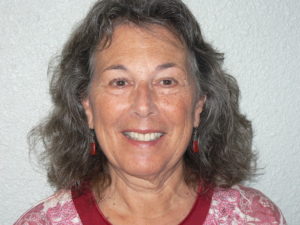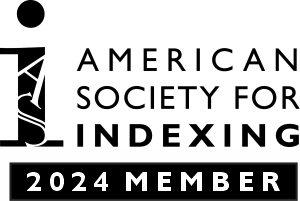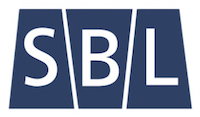We’re running a series of interviews to introduce you all to our wonderfully talented group of independent indexers and taxonomists who enable us to say “yes” to the variety of project types and turnaround times our clients are looking for. Today, we’d like you to get to know our talented book indexer, Judy Gordon.
 Your Business
Your Business
PI: How long have you been an associate at Potomac Indexing?
I have been an associate at Potomac Indexing since 2009.
PI: Tell us your indexing (or other information access system) origin story. All superheroes, including indexers, have an origin story.
In 2007, I was in a thirty-year career in nonprofits and had recently sought to shake things up a bit by becoming an independent contractor in that arena. I marketed myself as a “program documenter,” picked up a number of documentation projects, and was meeting and occasionally working with other independent contractors. One of these new colleagues was someone who was actively seeking to redefine herself. Out of the clear blue one day, she told me about some of her career research. She had discovered the American Society for Indexing website and while indexing didn’t sound like something she would like or be good at, she thought it might be perfect for me. The skills, attributes, even personality traits listed on the website as helpful for an indexer to have were ones she felt I had. This casual, out-of-the-blue comment turned out to be an incredible gift! I immediately checked out ASI—to first learn just what indexing was—and signed up for the Berkeley course in a flash. Clearly I was ready for a new career path and appreciated a helping hand in finding that. I have thanked that colleague many times.
PI: What are your specialties and/or favorite subjects?
I have always been a combination-plate type of person, whether it be at restaurants or regarding reading material or leisure activities. My indexing interests have been no different. I always like a challenge and so take on projects on a wide variety of topics. In my PI work, I also appreciate the range of books, from For Dummies to “for scholars.”
PI: Pick one of your favorite subjects and tell us why it fascinates you.
See above. But here’s an interesting observation. I majored in anthropology in college. So I might have had some thought to seek anthropology books to index. But I have been so many years out of the anthropology field that that degree didn’t seem to be an advantage. It was exciting, however, to receive recently an assignment to index a cultural anthropology textbook. My how the field has changed since the late 1960s!
PI: What’s your best productivity or indexing secret tip (that you are willing to share, that is)?
Learning something new, like indexing, can be intimidating. There are so many details to process and apply, so much new vocabulary to learn. I find that my learning style is to pick up one or two new strategies over time rather than overwhelm myself with all possible good strategies. For example, I was thrilled to start using labels for organizing entries but didn’t discover them for a while, also Swap Acronym, also using a shortcut to find a specific page number in a PDF (thanks to Connie Binder’s webinar on PDFs).
PI: What do you consider the most challenging aspect of the work?
I have an ambivalent relationship with the feast-or-famine cycle of freelance work. The very flexibility I enjoy in being able to work when I want to can be an irritant too, particularly in the slow times.
PI: Where do you usually work? (Please include a photo of your office setup unless it’s a secret superhero location)
I have a designated home office with a stand-up workstation. I use a desktop computer exclusively with a large monitor. It’s a cozy space but adequate for doing the work and for having the appropriate resources at hand.
PI: Talk about your process (and this can be for book indexing or other related projects, like keyword tagging, embedded indexing, etc.). Any advice for other professionals—new and experienced?
I dive right in to an indexing project, starting at the beginning of the book. I work exclusively with the electronic PDF version and don’t mark it up. I don’t have a pre-work vetting process; I like to discover the book’s subject and organization as I go. I use labels for a variety of tasks (to mark entries with page ranges, to mark entries I know I need to search for more mentions of, to mark entries I have questions about, such as name order, spelling, diacritic marks to add in the RTF). I add double-posts and cross-references as I go. I bring together appropriate categories in the editing process (e.g., theories, systems, laws). I double-check that I’ve picked up all substantive mentions of a term by doing an extensive PDF search. I edit the draft index from hard copy. If I’m doing a run-in index, I work in indented format until the final version. I usually allow a wait time (like overnight) before submitting an index, to allow for those last-minute aha moments that only come in the middle of the night. I point out inconsistencies and misspellings for the publisher/author to resolve.
PI: What are your favorite/most-used tools, for indexing or other business purposes?
- Chicago Manual of Style (more for proofreading than for indexing; online version)
- Google (to double-check spelling of names and organizations)
- PDF search function
- Virtual International Authority Files (for name order)
PI: CINDEX, SKY or Macrex (or other)? What do you like best about your choice?
I use SKY. When learning the three designated indexing software programs in the Berkeley class, the spreadsheet metaphor on which SKY is based appealed to me.
PI: If you could only recommend one book about indexing, what would it be?
Indexing Books by Nancy Mulvaney
Personal Perspective
PI: Where do you live (just approximately, since this will be published on the Web)? And if you like, tell us a bit about your surroundings and folks you live with (including furry friends) if you wish.
I live in Denver, where my husband and I moved to in 1975 from our native state of Illinois. Our two adult sons, their wives, and our seven grandchildren live nearby. There is almost always someone’s birthday to celebrate!
PI: Tell us about your hobbies. Are there specific ones you turn to as a break from work, or any that are a special treat in between or at the end of projects?
I love being a freelancer and having the flexibility to enjoy leisure-time activities!
While not much of a reader until post-college, I’m a big reader now, both for work and pleasure. I’m in three book clubs (as much for the sociability as for the reading and discussion). I’ve been in one club for forty-two years and the other two for fifteen years each. (I’m incredibly loyal.) I’m committed to yoga and walking and gardening (I’ve even created an index of the over 100 species of plants in our gardens), and also enjoy playing the piano, bike riding, and canoeing (we live two blocks from the biggest lake in Denver). I am a volunteer with Historic Denver on a long-term survey project of all residences and commercial buildings in Denver over thirty years old. (A great opportunity to learn about architecture and history, and, like indexing, a well-defined, detail-oriented endeavor.) I’m also a regular in the Denver Dances of Universal Peace community.
PI: What’s the last book you read for fun?
Another Brooklyn by Jacqueline Woodson
PI: What’s your superpower?
Grace (as defined by Sarah Kaufman in The Art of Grace: On Moving Well through Life): “Grace doesn’t make a fuss about itself, but it subtly warms and transforms the atmosphere. At its essence, grace is the transference of well-being from one who is calm and comfortable to those around him or her.”
_____________________________________________________________
Judy Gordon is currently a proofreader and indexer. After a thirty-year career providing leadership and program development services to nonprofit organizations, Judy launched a freelance business in 2001 focusing on working with words and supporting others in communicating their ideas. She now provides the finishing touches on books. She has a BA in anthropology from the University of Illinois and a master’s in management from Regis University. Her indexing training is from the University of California Berkeley Extension, and she is a member of the American Society for Indexing. Find out more about her here: www.judygordon.biz




Leave a Reply